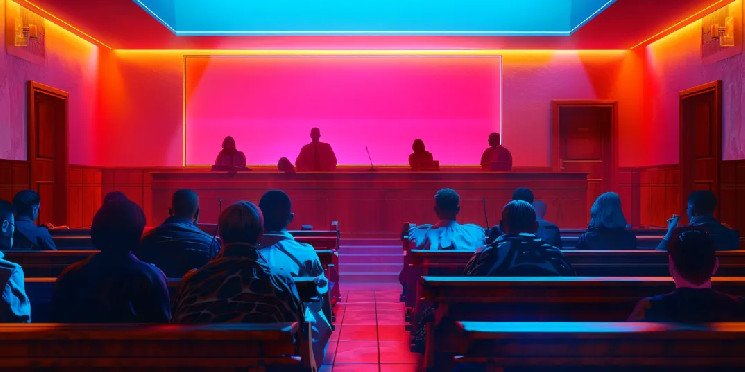The SEC certainly has its hands full with the crypto industry at the moment. The regulator seeks $2 billion in penalties from Ripple Labs, accusing the firm and its executives of raising $1.3 billion through unregistered $XRP token sales. Additionally, the SEC bashed Terraform Labs in its trial against the company and its founder Do Kwon. In Texas, a clothing company and the DeFi Education Fund sued the SEC to protect their BEBA token airdrop from regulatory scrutiny, challenging the SEC's broad classification of digital assets as securities under Chair Gary Gensler's leadership.
SEC Seeks $2 Billion in Penalties from Ripple
Stuart Alderoty, the Chief Legal Officer at Ripple Labs, recently revealed that the U.S. Securities and Exchange Commission (SEC) has sought a giant penalty against the company. According to an X post from Mar. 25, the SEC requested a federal judge to impose $2 billion in fines and penalties on Ripple. This request comes as part of a filing that was kept under seal until Mar. 26.
Alderoty strongly disagrees with the SEC's approach, and even accused the regulatory body of looking to punish and intimidate Ripple as well as the broader industry, rather than applying the law faithfully. He is, however, very confident that the court will handle this with fairness. Ripple also plans to file a response to the SEC's request in April, with Alderoty alleging that the regulator's statements are often misleading or false.
This legal battle comes in the wake of a Utah judge sanctioning the SEC for bad faith in its evidence handling against another firm, Debt Box, on Mar. 18. Ripple CEO Brad Garlinghouse is not happy about the situation and also took to X to share his thoughts, stating that the $2-billion fine request by the SEC is unprecedented. He also vowed to continue exposing the SEC's tactics.
The lawsuit against Ripple, which was filed by the SEC in December of 2020, accused the company, along with its CEO Garlinghouse and co-founder Chris Larsen, of raising $1.3 billion through sales of $XRP tokens, which the SEC claimed were unregistered securities. However, in July 2023, Judge Analisa Torres ruled that $XRP was not a security regarding its programmatic sales on digital asset exchanges, a decision that very likely influenced the SEC's move to dismiss charges against Garlinghouse and Larsen in October of 2023.
SEC vs. Terraform Labs
Meanwhile, the SEC portrayed Terraform Labs as a fraudulent empire during the opening day of its civil trial, according to a report from Reuters on Mar. 25. Speaking in the U.S. District Court for the Southern District of New York, SEC lawyer Devon Staren described Terra as a "house of cards" that led to massive losses for investors when it collapsed in 2022. The trial began more than a year after the SEC filed a lawsuit against the blockchain company and its co-founder Do Kwon in February of 2023, accusing them of orchestrating a multi-billion dollar fraud involving crypto asset securities.
Do Kwon, who was arrested in Montenegro in March 2023 for using falsified travel documents and subsequently served four months in prison, was absent on the trial's first day.
The SEC's case centers on allegations that Terra and Kwon misled investors about the stability of TerraUSD (UST), an algorithmic stablecoin that lost its peg to the U.S. dollar. This event is believed to have hugely contributed to the 2022 crypto market downturn, resulting in several companies declaring bankruptcy.
Although it was initially set for January, the trial's start was delayed to March, partly in anticipation of Kwon's potential in-person defense. In December 2023, Judge Jed Rakoff already ruled in favor of the SEC on the matter of Terra dealing with unregistered securities, while also ruling in favor of Kwon and the platform about the offer and sale of security-based swaps.
Beba vs. SEC
The SEC now also has its hands full in Texas. Beba, a Texas-based clothing company operated by African immigrants, along with the DeFi Education Fund, filed a lawsuit against the SEC. This move is aimed at protecting Beba's recent airdrop of BEBA tokens against any potential regulatory scrutiny. The lawsuit, which was filed on Mar. 25 in the U.S. District Court for Western Texas, seeks a declaratory judgment to clarify the SEC’s regulatory boundaries as per the Administrative Procedures Act (APA).
Beba's created 100,000 BEBA tokens, with 60,880 already distributed through an airdrop. These tokens have caught the attention of the SEC, which, according to the plaintiffs, is likely to classify BEBA tokens as investment contracts thus subjecting the airdrop to the very strict registration requirements under the Securities Act of 1933.
The lawsuit contends that the criteria for receiving the airdrop do not meet the traditional definitions of investment contracts under the Howey test, as those who receive the tokens are not required to offer meaningful consideration or engage in actions that would typically constitute an investment contract. The plaintiffs argue that the airdrop lacks a common enterprise and Beba does not promise efforts to increase the token's value, distinguishing the tokens from securities. Moreover, the token's linkage to discounts on Beba's merchandise is much more similar to a customer loyalty program than an investment scheme.
The lawsuit also criticizes the SEC’s approach under Chair Gary Gensler, accusing it of breaching the APA. The lawsuit points out that the SEC has adopted an unofficial policy that almost universally classifies digital assets as securities and transactions involving them as securities transactions, without the requisite openness, clarity, and public involvement mandated by the APA.
The suit's demands include a judicial declaration that the SEC has procedurally and substantively violated the APA by adopting this unwritten policy, alongside a request to vacate or prevent the enforcement of this alleged policy.
